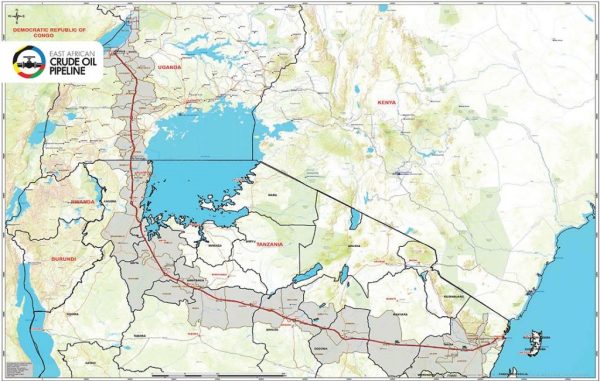China could fully fund the East African Crude Oil Pipeline (EACOP) after reports emerged that major European financiers have pulled out.
Standard Chartered Bank is reportedly not going to fund the project following pressure from climate change activists who have said that the project will be a major emitter of carbon.
To save the situation, French energy giant TotalEnergies which is spearheading the project has concluded a deal with China Petroleum Pipeline Engineering (CPP) and East Africa Crude Oil Pipeline operator EACOP to build the controversial pipeline in Africa.
Under the deal signed late last week, pipeline contractor CPP — owned by China National Petroleum Corporation (CNOOC) — will carry out engineering, procurement and construction for the 1443-kilometre pipeline, which will transport up to 216,000 barrels per day of oil from the Tilenga and Kingfisher fields in Uganda to Tanga on Tanzania’s coast.
China’s financing is set to offer new life to the mega project which continues to endure intense pressure from activists. Greenpeace Africa for instance, says that EACOP does not promote the idea of green energy.
And the pressure has worked at least. Last year, Allianz, one of the world’s largest oil and gas insurers, announced that it would not support the project. Munich Re, Hannover Re and SCOR also withdrew their support for the project.
The European Union members of parliament have also entered the fray. Late last year, the EU MPs passed a resolution opposing the project over what they described as serious human rights abuses.
The human rights violations include; wrongful imprisonment of human rights defenders, the arbitrary suspension of NGOs, arbitrary prison sentences and the eviction of hundreds of people from their land without fair and adequate compensation among others.
The European parliament then summoned TotalEnergies chief executive Patrick Pouyanné to Brussels to justify the project.
Meanwhile, a case had been filed in France seeking orders to stop the project. However, early this year a judge dismissed the case.
In the ruling the court said that the case was not only inadmissible but also required in-depth analysis to ascertain if the accusations against the firm were justified, including an audit of ground operations.
The activists have vowed more legal action in future. And it remains to be seen how Totalenergies will navigate this tricky terrain ahead of the set project completion date of 2025.
Also Read
EU presents fresh hurdle to East Africa Crude Oil Pipeline
Greenpeace Africa criticizes Uganda-Tanzania oil pipeline deal

